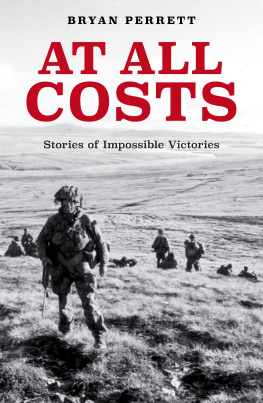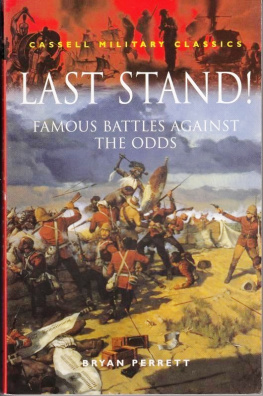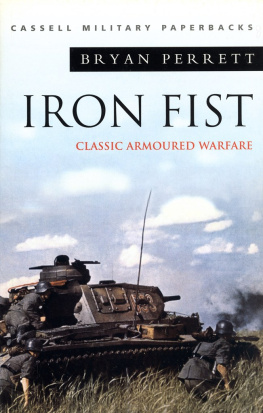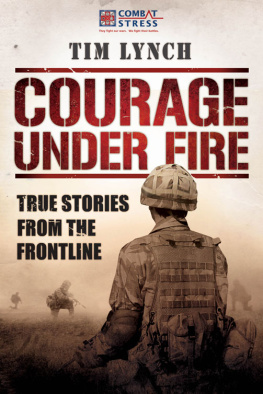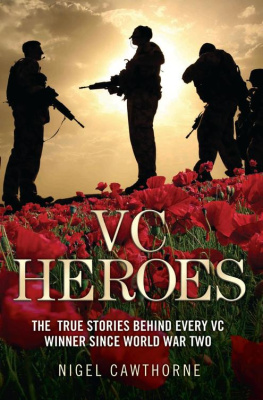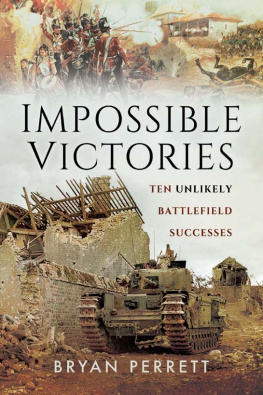Contents
CONTENTS
The incidents I have related in this book span some two and a half centuries of history. It would, therefore, have been quite impossible to complete the task I had set myself had it not been for the many people who so kindly assisted me with their time, advice and interest, as well as the learned institutions which provided generous access to their archives. In particular I should like to express my sincere thanks to: Alastair Campbell of Airds, Chief Executive of Clan Campbell; Mr F. Carpenter, Museums Officer, Doncaster Metropolitan Borough Council; Major A. G. B. Cobbold, Hon Curator of the Suffolk Regiment Museum; Mr John M. Coski, Staff Historian, Museum of the Confederacy, Richmond, Virginia; Colonel J. S. Cowley, Light Infantry Office (Yorkshire); Lieutenant-Colonel C. D. Darroch, Hon Archivist, The Royal Hampshire Regiment; Herr von Gusovius of the Bomann Museum, Celle; Major J. McQ. Hallam, The Lancashire Headquarters, Royal Regiment of Fusiliers; Mr T. J. F. Hodgson, The Buffs Museum Manager; Lieutenant-Colonel C. G. O. Hogg, Regimental Secretary, The Kings Own Scottish Borderers; Mr Norman Holme, Archivist of the Regimental Museum, Royal Welch Fusiliers; Oberstleutnant Joh. Kindler, Militrgeschichtliches Forschungsamt, German Army; the Ministry of Defence Library; Oberstleutnant Paprotka of the Wehrgeschichtliches Museum, Rastatt; Paul Riches; Dr A. von Rohr, Historisches Museum, Hanover; Major-General J. Scott Elliot, Lieutenant-Colonel A. W. Scott Elliot, Lieutenant-Colonel A. D. Malcolm and Lieutenant-Colonel Hamish Taylor of the Argyll & Sutherland Highlanders; and Mr John J. Slonaker, Chief, Historical Reference Branch, US Army Military History Institute.
Bryan Perrett, October 1992
Implicit in the use of the phrase at all costs is the desperate need to attain an objective or maintain an existing position, for the greater good of the whole. A unit can be set an at-all-costs mission in either an offensive or a defensive context. The common factor is urgency, time being the most valuable commodity on the battlefield. In the majority of cases, of course, while senior officers might decree that an action is to be fought irrespective of cost, comparatively few are pressed to such a conclusion. In those that are, it is usually the junior leaders who have provided the driving force and for this reason alone they are worth examining in some detail. A curious feature of this type of action is that, rare as it is, several can occur in one battle or in successive battles fought within days of one another. This phenomenon has produced what in the British Army would be described as Victoria Cross battles, although examples exist in the histories of all first-class armies.
The key can obviously be identified as motivation, yet in some of the examples studied the units involved were fresh while in others they were close to exhaustion, so clearly their experiences, perspectives and outlooks were different. But I was convinced that a common factor existed and in my search I was drawn to Lord Morans classic The Anatomy of Courage. Moran, who served as a medical officer with an infantry battalion during the First World War, defines courage as willpower. He makes the point that every man goes into action with a credit balance of courage in his moral bank account, and he accepts that the size of the balance will vary according to individuals. Withdrawals from the balance occur when a man is exposed to constant fear and danger, bad living conditions, boredom and failure. Ultimately, if too many withdrawals are made, the balance enters a minus quantity and the man concerned becomes a danger to himself and those around him. Conversely, as Moran says, If a soldier is always using up his capital he may from time to time add to it. There is a paying in as well as a paying out. Some of these deposits in the account are simply the inverse of the withdrawals, but others exist and some can provide an extremely powerful source of motivation.
Moran also stresses the obvious truth that morale is a collective as well as an individual force. It follows, therefore, that any unit receiving a sudden infusion of this kind, from whatever source, becomes a formidable opponent. Fear is suppressed by complete absorption in the work to be done; self-preservation is replaced by the need to destroy the enemy.
The examples I have chosen cover a wide spectrum of modern military history and have been selected because they illustrate the point very well indeed. Some are well known, others less so; many others exist. They take place on widely differing battlefields against a background of expanding weapon technology and firepower, yet the moral factors remain constant throughout.
I have begun with Minden where, as the result of a mistake, six British and three Hanoverian battalions advanced in isolation against the French army. By all the rules they should have been wiped out, but they absorbed the worst the enemys artillery could throw at them, destroyed his cavalry and chased his infantry off the field. As the French commander was undoubtedly told after the battle, it simply should not have happened.
Balaclava was the archetypal Victoria Cross battle. Logic dictated that the 93rd Highlanders should have been ridden down and the Heavy Brigade destroyed, yet together they removed the threat to the British armys supply line. The Light Brigade was destroyed, although its now legendary courage and discipline further demoralized the beaten enemy.
During the Indian Mutiny it was a moot point whether the small, disease-ridden force of British and Indian soldiers on the Ridge outside Delhi was besieging the much larger force of mutineers within the city, or vice versa. In the end, though fearful risks were taken, it was the fierce motivation of the former that carried the day.
At the battle of Gettysburg the courage of those defending an insignificant hillock named Little Round Top lasted for a few critical minutes longer than that of their opponents. If Little Round Top had fallen the entire Union line would have been placed in jeopardy and the probability is that Lees Confederates would have won, at the least, a limited victory. There would have been no need for the magnificent tragedy of Picketts Charge the following day and the course of the war, if not its ultimate ending, might well have been different.
The Franco-Prussian War of 18701 had a profound effect upon subsequent European history. Arguably, the result of the war was decided in two consecutive battles, Vionville Mars-la-Tour on 16 August 1870 and Gravelotte St-Privat two days later. In both the French came very close to victory and inflicted by far the heavier loss. At Vionville only the self-sacrificial cavalry charge known as von Bredows Death Ride saved the Germans from a potentially disastrous situation. At Gravelotte St-Privat the German right was heavily defeated and the outcome of the battle depended on what took place on the left. Here the Prussian Guard Corps sustained no fewer than 8,000 casualties in twenty minutes and was pinned down during an ill-conceived attack. When the moment came, however, the guardsmen stormed their objective and caused the French to retreat.
Today, in less idealistic times, we can view the despatch of the tiny Desert Column to the relief of General Gordon, besieged in Khartoum, as an example of political cynicism at its worst. If the column succeeded, well and good; if it were wiped out, no great harm was done. Against all probability, it survived the desert, beat the dervishes in two pitched battles, advanced to within sight of Khartoum and returned to tell the tale. Just for once, mud was left sticking to political fingers.

